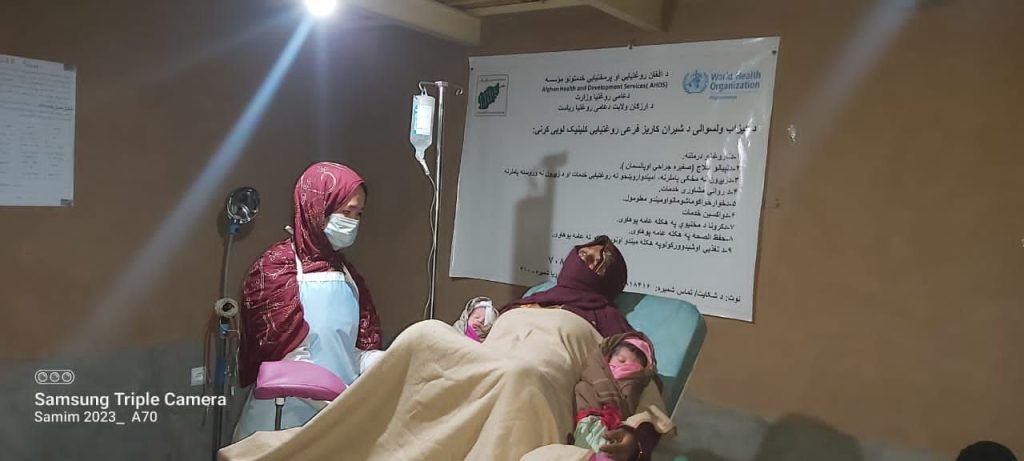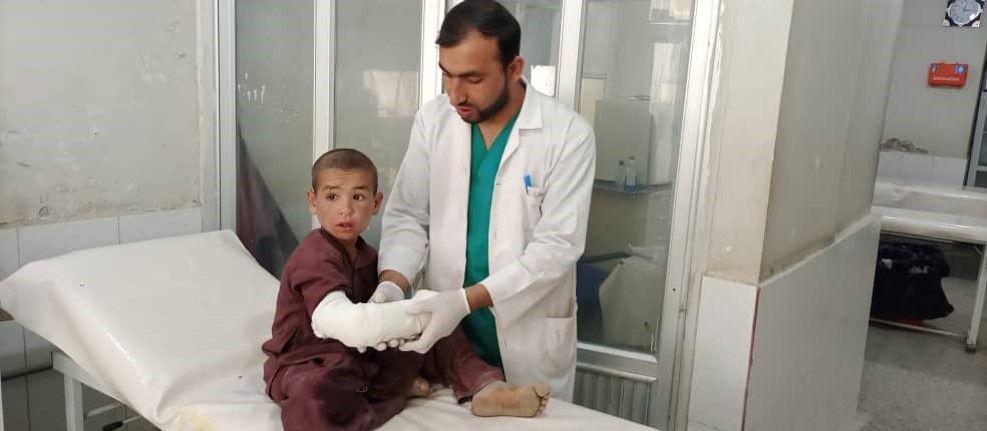Lifesaving PHC in white areas
Afghanistan, with a population of 44.5 million, has been affected by political instability, overlapping poverty, health threats, reoccurring natural disasters and conflict for over 40 years. It is facing one of the world’s most complicated and protracted humanitarian crisis, with more than half the population in humanitarian need, including 17.1 million requiring healthcare assistance.
WHO reports that Afghanistan continues to face multiple disease outbreaks a significant surge of acute watery diarrhea (AWD) cases has been observed across the country. For measles, although the number of cases has decreased, all provinces continue to report cases. Crimean-Congo hemorrhagic fever (CCHF) cases, including six associated deaths, have been reported from 13 provinces while a surge of new dengue fever cases was reported. Furthermore, flash flooding increased in July, inflicting multiple causalities. Heavy rains also damaged thousands of houses and impacted infrastructure, such as roads and bridges.
The south region provinces are mostly the tribal societies. They are mainly mountainous or semi-mountainous areas. The residents face with multiple crises including displacement, poverty, drought, weak investment in basic health services. Most of the population are in need to humanitarian services.

This project is intended to provide quality primary healthcare (PHC) services in underserved areas in the southern region of Afghanistan (Hilmand, Nimroz, Zabul and Urozgan provinces) through 15 static health facilities, six Basic Health Centers (BHCs) and 9 Sub health centers (SHCs), to reduce morbidity and mortality. The services include the seven components of the Basic Package of Health services (BPHS): 1) Maternal and newborn health, 2) Child Health and Immunization including OPV, 3) Public Nutrition, 4) communicable disease, 5) Mental Health, 6) Disabilities and Physical Rehabilitation, and 7) Regular supplies of essential drugs, in addition to non-communicable disease (NCDs) screening.
The project goal is to enhanced and provide lifesaving support for the people in need in Helmand, Nimroz, Urozgan and Zabul provinces through provision of primary health care services. Direct beneficiaries are about 100,909 people. The project is funded by WHO.

Scope of Work and Project overview:
- Implement primary health care services in 15 health facilities (refer to the list of HFs) in underserved areas of the four mentioned provinces.
- The services will include the seven components of basic package of health service (BPHS): maternal and newborn health, child health and immunization, public nutrition, communicable diseases, mental health, disability and referral for physical rehabilitation and regular supplies of essential drugs.
- Capacity building for healthcare facility staff based on the training needs assessment.
- Promote key health and nutrition messages in the targeted communities,
- Conduct nutrition screening for children under five years of age and pregnant and lactating women attending the static facilities.
- Non-communicable disease (Diabetes and Hypertension) and mental illnesses screening for treatment and/or referral including psychosocial counselling
